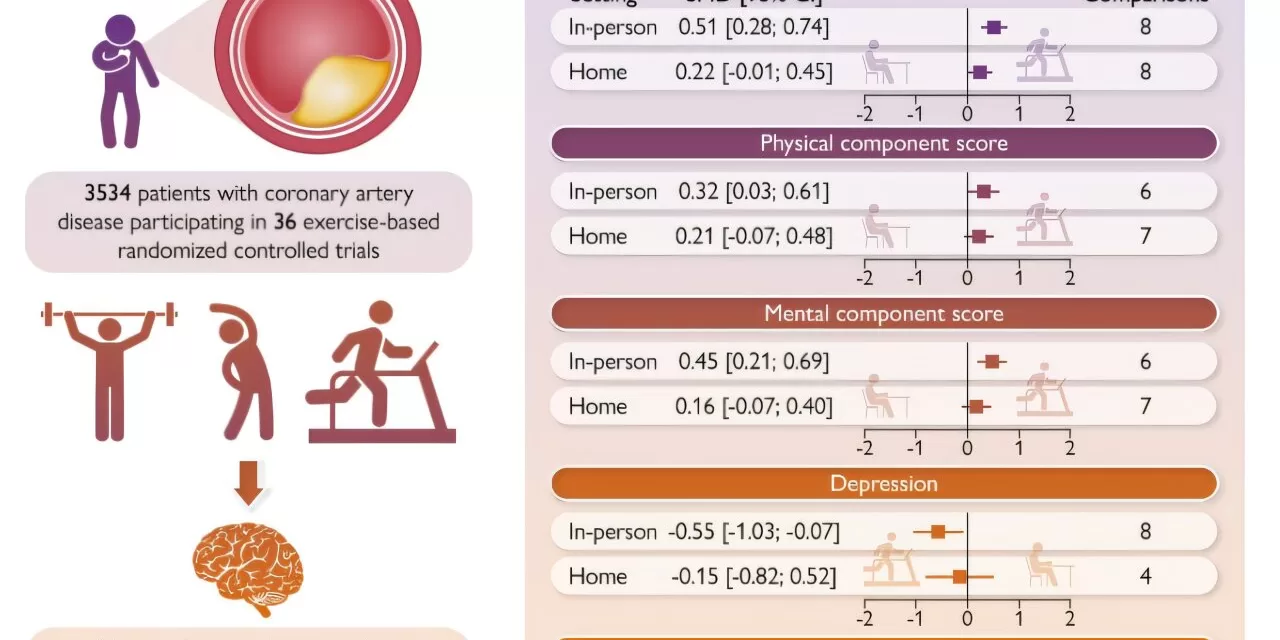GRANADA, Spain – A new study reveals that supervised exercise programs offer significant mental health and quality of life benefits for individuals with coronary heart disease, surpassing the effects of home-based exercise. Researchers from the University of Granada (UGR), in collaboration with the University of Castilla-La Mancha and Radboud University Medical Center (The Netherlands), published their findings in the European Heart Journal.
The study analyzed 36 previous investigations involving 3,534 coronary heart disease patients worldwide. Using network meta-analysis, a sophisticated statistical technique, researchers compared the effects of various exercise types, including strength training, moderate aerobic training, and high-intensity interval training.
Surprisingly, the context of exercise, rather than the specific type, proved most crucial for improving mental well-being. Face-to-face, supervised programs yielded the greatest benefits, while home-based programs showed more modest improvements. This highlights the importance of professionally supervised exercise programs tailored to individual needs.
“This study demonstrates that exercise not only improves physical and cardiac parameters, but also has a positive impact on patients’ mental health,” says Professor Francisco B. Ortega of UGR. He also noted a lack of research on other aspects of brain health, such as cognitive function and brain structure.
Researchers emphasized the heightened risk of mental disorders among coronary heart disease patients compared to healthy individuals. The study suggests that supervised exercise can be a valuable tool to mitigate this risk, improving both quality of life and mental health.
“Patients with coronary heart disease have a higher risk of mental disorders compared to healthy people of the same age. This study argues that exercise can be a valuable tool to attenuate this risk, improving their quality of life and mental health,” explains researcher Esmée A. Bakker, UGR, a lead author of the study.
This research challenges previous assumptions that remote and in-person exercise were equally effective. “Our study, including twice as many clinical trials and more advanced methodology, has shown that physical exercise performed in person and supervised, is clearly superior to that performed at home without supervision,” states Angel Toval, from the Department of Physical Education and Sports at UGR.
The study has significant implications for clinical practice, emphasizing the need for supervised exercise programs for coronary heart disease patients to maximize their mental and physical well-being.












